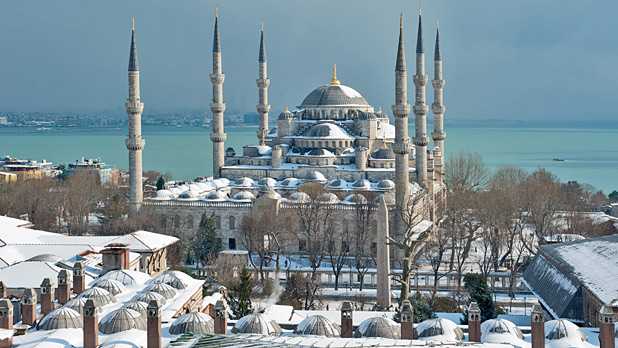Prime Minister Increases Conditions, Says NATO Plan Needs Local Commander
By MARC CHAMPION
ISTANBUL—Turkey said it would seek a leading role in a North Atlantic Treaty Organization missile-defense shield if it is to agree to host the system’s radars, ratcheting up its conditions days before a key alliance meeting.
Turkey would demand that NATO assign a Turkish commander to oversee the shield, Prime Minister Recep Tayyip Erdogan said Monday. “Especially if this is to be placed on our soil, [command] definitely should be given to us—otherwise it is not possible to accept,” Mr. Erdogan told journalists at Istanbul’s Ataturk airport on Monday, according to Anadolu Ajansi, Turkey’s state-funded news agency.
Sharpening his country’s position ahead of a summit of NATO leaders in Lisbon this week, Mr. Erdogan said Turkey’s other top concerns include where the system’s radar sensors would be deployed and where debris from any intercepted missiles would fall. “This will be discussed at the Lisbon summit. If we reach an agreement, that’s great. If not, there’s nothing more to say,” he said.
Turkey has been in negotiations over the missile shield for weeks, primarily with the U.S., which proposed and would build the system. Starting with existing technology and upgraded in stages, the shield would by 2020 protect Europe and the U.S. from ballistic missile threats from the region.
The NATO shield has put Turkey’s government in a difficult position. U.S. policies in the region are unpopular in Turkey. Conservative newspapers have worried that hosting the radar could make Turkey a potential first-strike target for anyone planning to launch an attack.
Turkish leaders also are working hard to avoid being put in a position of having to choose publicly between support for NATO and Iran, an important neighbor and energy supplier that Ankara has been trying to court. On Monday, Mr. Erdogan reiterated Turkey’s top-line condition for its support, namely that an agreement at the summit shouldn’t mention Iran as the threat against which the shield is being built. The U.S. has repeatedly identified Iran as the primary reason for building it.

A European ambassador to NATO said the Turks have become “difficult” on the missile-defense issue in recent weeks. A U.S. defense official said that in one-on-one meetings with U.S. officials last week, Turkish officials hadn’t requested command of the defense system.
Diplomats don’t expect Ankara ultimately to block NATO from building the shield, and it was unclear on Monday how much of Mr. Erdogan’s agenda Turkey would push at the Portugal summit. But its position has the potential to put it into conflict with Washington.
“Negotiations between the allies are still going on and the Turks are obviously playing hardball,” said a NATO official who declined to be identified. The official said discussion at the summit would likely focus on issues “of principle,” including whether to name Iran in the threat assessment and whether the system would cover the entire Turkish territory, as Turkey desires.
But the official said that most of what Mr. Erdogan referred to Monday—such as in whose hands the system’s command and control would be placed—would likely be negotiated after the summit. That is especially true if Russia also agrees to cooperate with the shield, as the allies hope. Moscow’s involvement would require extensive negotiation, the official said.
The U.S. defense official said it was “too early to discuss the location of any potential new command infrastructure” until after NATO agrees to pursue a shield system. U.S. officials have said, at least initially, the existing American missile-defense infrastructure is likely to be used by any NATO system.
Turkey isn’t seeking to have its finger on the shield’s button, according to a senior aide to Mr. Erdogan. The time window for intercepting incoming missiles is also too short to allow for political control, diplomats say, meaning the shield would operate according to rules of engagement set in advance by all NATO members.
Mr. Erdogan didn’t call for the missile shield’s headquarters to be located in Turkey. Still, Turkey would hope to host the shield’s headquarters, possibly at NATO’s base in Izmir, in Western Turkey, the senior aide said.
The NATO summit, which runs Friday and Saturday in the Portuguese capital, is also expected to adopt a new strategic concept for the alliance, covering the next 10 years.
NATO decisions are taken by consensus, meaning that any one of the alliance’s 28 members has power of veto. Last month, Turkish Foreign Minister Ahmet Davutoglu said it was “out of the question” for Turkey to oppose a project that NATO sees as necessary for its defense, but he left open whether Turkey would participate by hosting its radars.
Mr. Davutoglu also said it was essential the shield should cover all of Turkey and that it should not turn Turkey into a frontline state, as during the Cold War, by identifying particular countries as threats.
A senior Turkish official confirmed Monday that President Abdullah Gul also has sent a letter to alliance leaders stating the Turkish position. Mr. Gul’s office declined to provide details of the letter.
Turkey is the preferred location for the system’s radars because it shares a border with Iran, according to diplomats familiar with the project. Bulgaria and Romania are also possible radar locations being discussed, these people say. The missile interceptors themselves, meanwhile, would be located at sea in the first phase of the project, in Romania and at sea as of 2015 and in Poland as of 2018, U.S. officials have said.
Although a NATO project, the defense shield is being proposed by Washington and would be built by the U.S. NATO members would pay an estimated $270 million to integrate the system over 10 years.
—Stephen Fidler in Brussels and Julian E. Barnes in Washington contributed to this article.Write to Marc Champion at [email protected]





